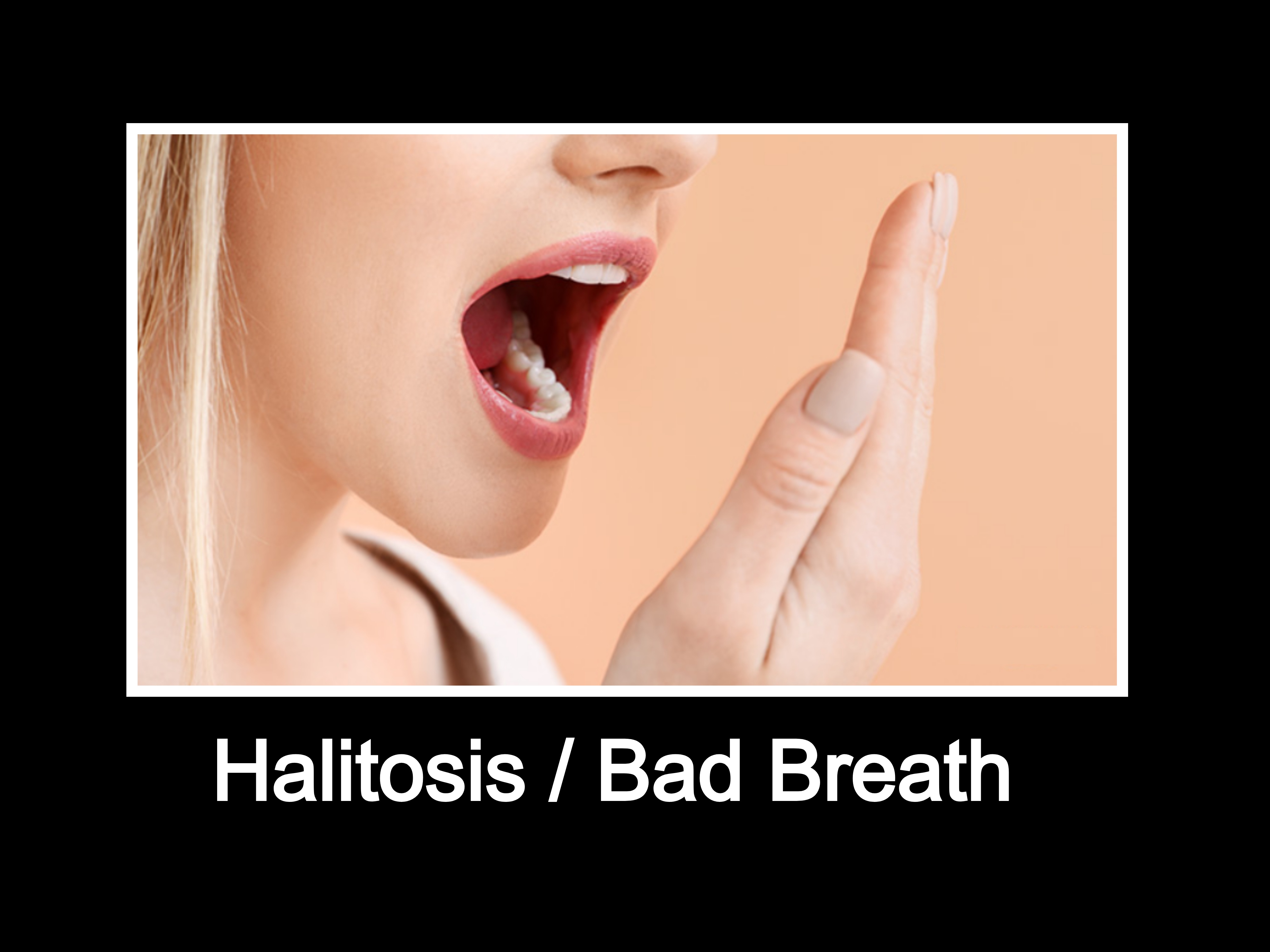
Halitosis - Bad breath - Bad odor from mouth
Halitosis - Bad breath - Bad odor from mouth
Halitosis, commonly known as bad breath, can be caused by various factors, and there are remedies available to manage it. Here's a brief overview of its causes, remedies, and limitations:
Causes:
Poor Oral Hygiene: The most common cause of bad breath is inadequate dental hygiene, leading to the accumulation of bacteria in the mouth.
Dental Issues: Dental problems such as cavities, gum disease, and oral infections can contribute to bad breath.
Food and Beverages: Certain foods and drinks like garlic, onions, coffee, and alcohol can lead to temporary bad breath.
Dry Mouth: Saliva helps cleanse the mouth, and a dry mouth can result in bad breath due to reduced saliva flow.
Smoking: Smoking tobacco products can cause chronic bad breath.
Medical Conditions: Some medical conditions like respiratory infections, diabetes, and liver disease can lead to bad breath.
Remedies:
Improved Oral Hygiene: Brushing teeth, flossing, and using mouthwash regularly can help maintain good oral health and reduce bad breath.
Dental Care: Addressing dental issues through professional dental cleanings and treatments can resolve bad breath caused by oral problems.
Stay Hydrated: Drinking water helps prevent dry mouth and encourages saliva production.
Dietary Adjustments: Avoiding pungent foods and beverages can help reduce temporary bad breath.
Smoking Cessation: Quitting smoking can greatly improve breath odor.
Treating Underlying Conditions: Addressing medical conditions through appropriate medical care can help alleviate bad breath associated with those conditions.
Limitations:
Temporary Remedies: Some remedies, like mouthwash and mints, provide only temporary relief and do not address the root causes of bad breath.
Underlying Medical Conditions: In some cases, bad breath may be a symptom of a more serious underlying medical condition that requires specific treatment.
Masking Odor: Many commercial products mask bad breath temporarily but do not address its root causes, making it important to identify and treat the underlying issues.
Individual Variability: The effectiveness of remedies may vary among individuals, and some people may not experience significant improvement in their bad breath despite trying various approaches.
In summary, bad breath can result from various causes, and its management involves addressing the underlying issues and maintaining good oral hygiene. While remedies can provide relief, it's important to consider the limitations and seek professional help if bad breath persists or is associated with underlying health problems.
Treatment

Dental Scaling
Dental scaling occurs with manual hand instruments, ultrasonic instruments or both. The dentist will start the procedure with a thorough examination of your mouth. Next, an ultrasonic scaling device will be used to eliminate the plaque bacteria with sonic vibrations. The ultrasonic scaling device removes tartar (calculus), plaque and biofilm from the tooth surface and underneath the gum line.